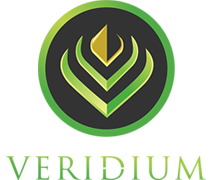
Introduction
Currently there are thousands of startups related to blockchain. More and more people are getting behind blockchain and seeing it as a potential source of revenue and productivity. In this article we will discuss what blockchain is and what you can do to find success within this innovative foundational technology that has the power to disrupt various industries.
What is Blockchain?
A blockchain is a digital, decentralized ledger that records transactions taking place in a peer-to-peer market. The reason why blockchain matters is because it is capable of increasing efficiency in many industries. It does this by solving current issues of mistrust, opacity, and hackability.
The genius behind blockchain lies in its decentralized nature. That is a major factor that explains why the technology appeals to so many people. Blockchain technology eliminates the need for a centralized third party “middleman” that regulates transactions and requires time and money to do so. Instead, it uses built in public and private keys that allow people to interact without as many added fees or additional processing time. These keys encrypt information and ensure that data is protected while being transmitted. Transactions are verified in this distributed ledger by miners who use computing power to solve hashes and are rewarded with tokens. Once a transaction is verified by miners and confirmed through consensus by other users on the network, a block is added to the chain. The blocks that are added to the chain once transactions are verified and confirmed are made public to everyone in the network. That introduces transparency into the system and resolves the common problem of opacity in various industries.
The problems of mistrust and hackability are also easily solved by the blockchain. Each block on the blockchain contains a hash, or a combination of characters that is unique to each block. Each block on the blockchain will contain its own hash as well as the hash of the previous block that links it to the rest of the chain. If someone were to try and tamper with a block, the hash on that block would change, thereby notifying users on the chain that someone has meddled with their information. Decentralization and cryptography engrained in the key and P2P (peer-to-peer) system combined with the hash system make tampering and hacking virtually impossible. This is because in order to infiltrate a blockchain system, the hacker would need to tamper with every single block on the chain in order to fool the users on the blockchain. This is much more difficult than invading a single central entity such as a bank. The result is a system that is both tamper proof and trustworthy.
Another way that blockchains can successfully allow people to interact on a P2P platform without interference is through the creation and use of smart contracts. These are digital contracts written in code on the blockchain that lists the terms and conditions of a transaction. Simply put, they work on an If-Then premise. Once the conditions are fulfilled by both parties in the contract, the contract executes itself according to its terms. This again eliminates the need for a third party in any transaction whether it’s regarding the transfer of money, property, or even energy.
Where is it used?
Blockchain technology is used for a number of purposes beyond the world of cryptocurrencies. Over the past few years Blockchain technology has seen its usage increase in the following industries: Data management, energy, e-voting, gaming & gambling, IoT, market forecasting, media & content distribution, philanthropy & community service, real estate, supply chain management, and the cannabis industry.
In the supply chain management industry Blockchain technology is being used because it offers traceability and cost-effectiveness creating a new level of transparency among B2B ecosystems. This has a direct effect on the quality assurance industry because it can pinpoint problems in the supply chain making it easier to carry out investigations and take necessary actions. The food sector is a good example of an industry that benefits from the blockchain.

With the ability to operate and act as a public ledger for a large number of devices blockchain could eliminate the need for a central location to handle communications between them allowing devices to communicate with each other directly and update software, manage bugs, and monitor energy usage. This will benefit the networking and IoT sectors.
The voting system could benefit as blockchain would lower the potential for electoral fraud occurring. NASDAQ ran an experiment using blockchain technology to hold shareholder voting. It was successful.
It will also benefit the energy supply industry. Blockchain can enable transactive grids for sustainable energy solutions that track usage. Powerpeers in the Netherlands and Exergy in Brooklyn are currently using it. Exergy is using the data that homes and technology generate and turn it into an everyday asset. The exergy token permissions the data to be shared on the platform allowing the information the opportunity to be owned and paving the way for new business models to be developed from an analysis of it. The World Energy Council is trying to make a case for most energy hubs to take up blockchain technology as their backing technology.
Industries built on trust such as accounting, data management, real estate, gambling, and philanthropy could all benefit from the technology offered by Blockchain. The blockchain could eliminate the issues of corruption and inefficiency in the charity sector. Smart contracts on the block chain benefit the insurance industry because they can integrate real world data into the contracts. The blockchain technology can be used to place and monitor bets on anything in a decentralized way. The accounting industry benefits from the technology because it virtually eliminates human error and protects data from tampering. Because the records are verified from each node to the next it leaves a highly traceable audit trail and makes the accounting process more efficient.
Blockchain technology has lead to the development of smart contracts. These smart contracts allow for agreements to be automatically validated, signed and enforced through the Blockchain. This eliminates the need for mediators as a result and saves those involved both the time and money of dealing with a third party.
Not only has Blockchain seen increased relevance in various industries because of its cost-effectiveness and efficiency, but it has also been used to help resolve political issues across the globe. It was used to help manage the Refugee Crisis in Syria. The UNWFP sent over 10,000 Syrian refugees cryptocurrency-based vouchers so that they could purchase food with them. Blockchain has also been used to develop financial avenues for the world’s impoverished people. Blockchain acts as a bank-like institution for people without bank accounts and makes it relatively cheaper for them to send and receive money through platforms such as BitPesa.
Why are some blockchain applications successful? (use cases we researched as examples)
Blockchain blitzed the world with its innovative solution to society’s problems. A distributed ledger of information was promised to eliminate our fears of central authority, lack of private security, and reliability of peers.

However, zealous supporters have found it difficult to effectively implement the technology without resistance from the government and proper support. Only a few applications of it have emerged victorious in their quest to break the status quo, including cryptocurrency and its exchanges. The most famous, Bitcoin, introduced by Satoshi Nakamoto in 2008 proved that it had an indispensable value proposition. Vyers of anonymity could exchange digital currency without leaving a blatant trail for the government to follow. Bitcoin pioneered blockchain’s campaign to revolutionize society and as a result, created a strong following for the virtual asset.

Contemporary technology that sees success always garners hordes of users who wish to replicate it. Unfortunately, many inevitably fail due to numerous reasons including poor execution, lack of appeal, and failure to market through the red ocean. In fact, 92 percent of all blockchain projects are abandoned and have an average lifespan of 15 months.[1] Interestingly, a Harvard Business Review paper stated that blockchain is not “disruptive technology, [but rather] foundational technology [that] has the potential to create new foundations for our economic and social systems.”[2] This has important implications because it means that blockchain applications require long term value recognized by users in order to operate successfully. Furthermore, there is not enough room for a multitude of societal foundations. Therefore, blockchain applications attempting to establish themselves must distinguish their advantages from thousands of competitors.
Branche, a micro lending platform based on blockchain and cryptocurrency failed its ICO during early 2017. The application directed the company’s mission on repairing America’s feeble loan industry through its cryptocurrency capabilities. However, the five million Americans who have defaulted on just student federal loans will not be rescued by anonymity and decentralization. Instead, the exact opposite is bound to occur because no institution can control lending volume. Society still clearly acknowledges the government’s merit in loaning and as a result allowed Branche to seek a new salvation.[3]

On the other hand, micro asset investing in the real estate market is gaining traction because it liquidates a traditionally illiquid asset and eases the process of real estate investing. IHT Real Estate Protocol is a blockchain based company that is radically altering asset management. The platform acts as a unification setting for financial institutions, developers, and individual investors. Developers can issue Asset Tokenize Offerings (ATOs) that are subsequently underwritten by financial institutions. After, the institutions distribute the investment opportunity as a smart contract that anyone can engage with. All transaction details are published on the blockchain network, thereby eliminating information adjacency. IHT successfully fulfilled its maximum ICO funding, proving its evident value. Investors will be able to derive long term value through IHT’s fragmentation of large housing assets. The $108 trillion un-investible residential real estate market will no longer be a one hundred or none opportunity.[4]

The energy industry is another area where blockchain companies are finding success. EnergiMine is an AI and blockchain company that specializes in rewarding energy efficient behavior. They use ETK tokens as rewards for energy-saving behavior in order to incentivize people to make more sustainable decisions, and this vision to revolutionize the energy market has caught the attention of companies across the world. EnergiMine hit their hard cap and raised $15 million in their ICO within 1 hour and 21 minutes and are currently managing over $140m of energy across Europe.[5] This company has been thriving since their ICO due to their well-planned business model that attracted investors all over the world. Veridium, a Hong Kong tech startup with a similar goal as EnergiMine’s, has also gained traction in the blockchain-energy market. Their purpose is to simplify the process of purchasing carbon offsets for large companies. They run their company by creating TGR tokens backed by carbon offset credits recognized by the UN as well as Veridium membership tokens that will grant companies access to their marketplace platform, “thereby creating a transparent pricing and liquid marketplace for the world’s largest asset class, natural capital, and providing economically viable solutions for corporate sustainability.”[6] This startup hopes to raise $150 million in their token sale and has been backed by numerous Fortune 500 companies including Microsoft, BP, and Shell among many others.[7] These two blockchain companies have done well because they are founded on the purpose of solving a problem that society currently faces. It is the useful aspect of their applications that will ultimately make them succeed in the long run. 
Conclusion
A developing decentralized network with the added features of anonymity and smart contracts is a major attraction to both businesses and investors. Eliminating the need for the third party mediators and providing a platform with greatly reduced government influence has allowed blockchain to flourish and gain a great deal of popularity. With the information provided above, you can see that blockchain has a number of potential uses and applications. However, actually implementing the decentralized and anonymous technology is a laborious and complicated task. Simply riding a wave of popularity without proper precautions can lead to inevitable failures. Although Bitcoin may be the trending blockchain topic in the news today, the blockchain’s disruptive nature guarantees that the financial industry won’t be the only industry affected. This technology is bound to permeate through numerous markets and transform the way they interact. It is therefore critical to keep up with current events in order to keep up in today’s fast paced world.
Interested in Digital Transformation?
Please contact us through this email for more information: info@aa-limited.com
[1] https://ethereumworldnews.com/92-of-all-blockchain-projects-fail/
[2] https://hbr.org/2017/01/the-truth-about-blockchain
[3] http://www.businessinsider.com/student-loan-default-puts-economy-at-risk-2017-12
[4] https://ihtcoin.com/
[5] https://www.crowdfundinsider.com/2018/02/128002-energi-mine-public-ico-raises-4-million-81-minutes/
[6]http://www.the-blockchain.com/2017/08/30/veridium-labs-launches-token-sale-creating-global-marketplace-carbon-credits-natural-capital/


 Hide Menu
Hide Menu

